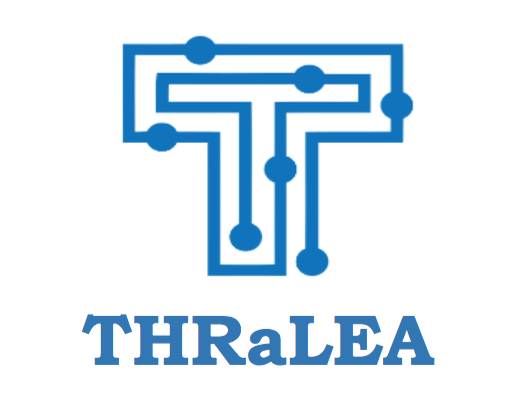Taxes……
Restaurant owners are subject to various taxes, and the specific obligations can vary based on the location and the structure of the business. Here are some common taxes that restaurant owners may need to consider:
1. Income Tax
Restaurant owners are typically required to pay income tax on the profits generated by their businesses. This tax is based on the net income, which is the total revenue minus allowable business expenses.
2. Sales Tax
Many jurisdictions impose sales tax on the goods and services provided by restaurants. Restaurant owners are responsible for collecting these taxes from customers and remitting them to the appropriate tax authorities. You can either pay this monthly or quarterly, most restaurants prefer a quarterly reporting.
3. Payroll Taxes
If the restaurant has employees, the owner is responsible for withholding and remitting payroll taxes. This includes income tax withholding, Social Security tax, and Medicare tax.
Payroll taxes are taxes that employers withhold from their employee's wages and are required to remit to the appropriate tax authorities. These taxes fund various government programs, including Social Security, Medicare, and unemployment benefits. There are two main types of payroll taxes: employee withholdings and employer contributions.
Employee Withholdings:
- Social Security Tax: This tax funds the Social Security program, providing benefits to retirees, disabled individuals, and survivors. As of my last knowledge update in January 2022, employees pay 6.2% of their wages up to a certain income threshold.
- Medicare Tax: This tax supports the Medicare program, which provides healthcare benefits to individuals aged 65 and older. Employees pay 1.45% of their wages, and high-income earners may pay an additional Medicare tax.Employer Contributions:
- Matching Social Security and Medicare Contributions: Employers are required to match the Social Security and Medicare contributions made by their employees. As of my last update, the employer's contribution rate for Social Security is also 6.2%, and the Medicare contribution rate is 1.45%. However, there is no income cap on the Medicare portion.Federal and State Income Tax Withholdings:
- Employers are also responsible for withholding federal and state income taxes from employees' wages based on the information provided by employees on their W-4 forms. These amounts are then remitted to the respective tax authorities.Unemployment Taxes:
- Employers pay federal and state unemployment taxes to fund unemployment benefits for workers who lose their jobs. These taxes are not withheld from employee wages but are solely the responsibility of the employer.
It’s essential for employers to accurately calculate and withhold these taxes, report them to the relevant tax authorities, and make timely payments. Non-compliance can result in penalties and legal consequences. Additionally, tax laws and rates may change, so it's crucial to stay informed about any updates to payroll tax regulations.
4. Property Tax
If the restaurant owns the property where it operates, property taxes may apply. These taxes are typically assessed by local governments and are based on the value of the property.
5. Equipment Tax
An “equipment tax” typically refers to a tax levied on business equipment, machinery, or other tangible assets that a company uses in its operations. This type of tax is often associated with property taxes assessed by local governments.
Here are some key points related to equipment taxes:
Property Tax Assessment: Business equipment is considered personal property, and in some jurisdictions, it is subject to property taxes. This means that the value of the equipment is assessed, and the business owner is required to pay taxes based on that assessed value.
Types of Equipment: Equipment subject to taxation can include machinery, computers, furniture, tools, and other tangible assets used for business purposes. The tax may vary based on the type and value of the equipment.
Local Jurisdiction: The assessment and collection of equipment taxes are typically handled at the local level. local governments may have different rules and rates for taxing business equipment.
Depreciation Considerations: In some cases, the assessed value of equipment may take into account depreciation, reflecting the idea that the value of equipment decreases over time due to wear and tear.
Exemptions and Deductions: Some jurisdictions may provide exemptions or deductions for certain types of equipment, especially if it’s used for specific purposes, such as manufacturing or research and development.
I highly recommend that you keep a record of all your restaurant equipment to comply with this regulations. This might involve reporting the value of business equipment, which is then used to calculate the property tax owed. Consult with your accountant or contact the local tax assessor’s office, they can provide specific information on how equipment taxes are assessed and applied.
6. Liquor Taxes
If the restaurant serves alcoholic beverages, there may be specific taxes related to the sale of liquor. These can include excise taxes or licensing fees.
7. Unemployment Taxes
Employers, including restaurant owners, are often required to pay unemployment taxes to fund unemployment benefits for eligible workers.
8. Franchise Tax or Business License Tax
Some jurisdictions impose a franchise tax or a business license tax on businesses, including restaurants, for the privilege of operating within that jurisdiction.
9. Healthcare-Related Taxes
Depending on the location, there may be healthcare-related taxes or fees that businesses, including restaurants, are required to pay to support healthcare initiatives.
Restaurant owners need to stay informed about the specific tax obligations in their area and seek the advice of tax professionals to ensure compliance. Tax laws can be complex and subject to change, so having a good understanding of the applicable taxes is crucial for proper financial management and legal compliance.
